Middlefield (860) 349-8500
Wallingford (203) 294-4977
Middlefield (860) 349-8500
Wallingford (203) 294-4977
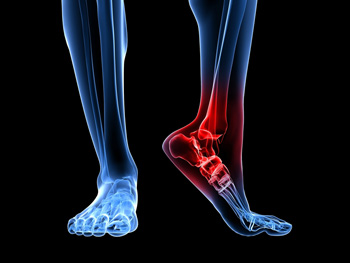 Teenagers who are physically active may experience a painful condition that is known as Sever’s disease. It was discovered and named in 1912, and is considered to be the most common form of heel pain in children. This condition affects the growth plate in the heel, and generally occurs during growing spurts. Performing certain sporting activities may put excess pressure on the heels, and may contribute to severe pain and swelling. Factors that may precede developing Sever’s disease can include having flat feet, wearing shoes that do not fit correctly, or having one leg that is shorter than the other leg. The foot may feel better when it is elevated as frequently as possible, in addition to wearing supportive shoes and inserts. If your child is afflicted with Sever’s disease, it is advised that you schedule a consultation with a podiatrist who can properly treat this condition.
Teenagers who are physically active may experience a painful condition that is known as Sever’s disease. It was discovered and named in 1912, and is considered to be the most common form of heel pain in children. This condition affects the growth plate in the heel, and generally occurs during growing spurts. Performing certain sporting activities may put excess pressure on the heels, and may contribute to severe pain and swelling. Factors that may precede developing Sever’s disease can include having flat feet, wearing shoes that do not fit correctly, or having one leg that is shorter than the other leg. The foot may feel better when it is elevated as frequently as possible, in addition to wearing supportive shoes and inserts. If your child is afflicted with Sever’s disease, it is advised that you schedule a consultation with a podiatrist who can properly treat this condition.
Sever's disease often occurs in children and teens. If your child is experiencing foot or ankle pain, see Dr. Gordon Fosdick from Affiliated Foot Care Center. Our doctor can treat your child’s foot and ankle needs.
Sever’s Disease
Sever’s disease is also known as calcaneal apophysitis, which is a medical condition that causes heel pain I none or both feet. The disease is known to affect children between the ages of 8 and 14.
Sever’s disease occurs when part of the child’s heel known as the growth plate (calcaneal epiphysis) is attached to the Achilles tendon. This area can suffer injury when the muscles and tendons of the growing foot do not keep pace with bone growth. Therefore, the constant pain which one experiences at the back of the heel will make the child unable to put any weight on the heel. The child is then forced to walk on their toes.
Symptoms
Acute pain – Pain associated with Sever’s disease is usually felt in the heel when the child engages in physical activity such as walking, jumping and or running.
Highly active – Children who are very active are among the most susceptible in experiencing Sever’s disease, because of the stress and tension placed on their feet.
If you have any questions, please feel free to contact our offices located in Middlefield and Wallingford, CT . We offer the newest diagnostic and treatment technologies for all your foot and ankle injuries.
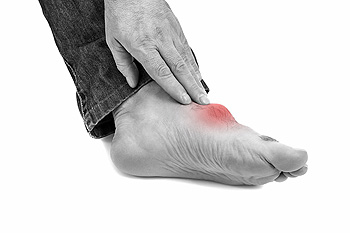 There are several types of arthritis, including gout. It is known to be a painful condition that generally affects the big toe. Some of the symptoms that are associated with gout can include severe pain and discomfort, redness, and the affected area may feel hot. It may occur as a result of elevated uric acid levels in the blood, and can form crystals which lodge in the joints of the big toe. Existing factors that may increase the chances of being afflicted with gout can consist of being diabetic, having high blood pressure, or being overweight. There are methods that can be taken which may prevent gout attacks. It is helpful to reduce alcohol intake, eliminate food and drinks that have high sugar levels, and avoid red meat. If you have experienced a gout attack, it is strongly recommended that you are under the care of a podiatrist.
There are several types of arthritis, including gout. It is known to be a painful condition that generally affects the big toe. Some of the symptoms that are associated with gout can include severe pain and discomfort, redness, and the affected area may feel hot. It may occur as a result of elevated uric acid levels in the blood, and can form crystals which lodge in the joints of the big toe. Existing factors that may increase the chances of being afflicted with gout can consist of being diabetic, having high blood pressure, or being overweight. There are methods that can be taken which may prevent gout attacks. It is helpful to reduce alcohol intake, eliminate food and drinks that have high sugar levels, and avoid red meat. If you have experienced a gout attack, it is strongly recommended that you are under the care of a podiatrist.
Gout is a foot condition that requires certain treatment and care. If you are seeking treatment, contact Dr. Gordon Fosdick from Affiliated Foot Care Center. Our doctor will treat your foot and ankle needs.
What Is Gout?
Gout is a type of arthritis caused by a buildup of uric acid in the bloodstream. It often develops in the foot, especially the big toe area, although it can manifest in other parts of the body as well. Gout can make walking and standing very painful and is especially common in diabetics and the obese.
People typically get gout because of a poor diet. Genetic predisposition is also a factor. The children of parents who have had gout frequently have a chance of developing it themselves.
Gout can easily be identified by redness and inflammation of the big toe and the surrounding areas of the foot. Other symptoms include extreme fatigue, joint pain, and running high fevers. Sometimes corticosteroid drugs can be prescribed to treat gout, but the best way to combat this disease is to get more exercise and eat a better diet.
If you have any questions please feel free to contact our offices located in Middlefield and Wallingford, CT . We offer the newest diagnostic and treatment technologies for all your foot and ankle needs.
An ingrown toenail is a foot condition that can cause severe pain and discomfort. It occurs as a result of the nail growing into the skin instead of over it. This ailment typically happens to the big toe, and may make the area look red and swollen. A common cause for ingrown toenails to develop can include wearing shoes that do not have adequate room for the toes to move freely in. Additionally, this condition may develop from improperly trimming the toenails. Patients may find mild relief when the affected foot is soaked in warm water several times per day. This may be helpful in lifting the nail away from the skin with a small piece of cotton. For severely infected ingrown toenails, it is suggested that you schedule a consultation with a podiatrist who can provide the necessary treatment for recovery.
Ingrown toenails can become painful if they are not treated properly. For more information about ingrown toenails, contact Dr. Gordon Fosdick of Affiliated Foot Care Center. Our doctor can provide the care you need to keep you pain-free and on your feet.
Ingrown Toenails
Ingrown toenails occur when a toenail grows sideways into the bed of the nail, causing pain, swelling, and possibly infection.
Causes
Prevention
Because ingrown toenails are not something found outside of shoe-wearing cultures, going barefoot as often as possible will decrease the likeliness of developing ingrown toenails. Wearing proper fitting shoes and using proper cutting techniques will also help decrease your risk of developing ingrown toenails.
Treatment
Ingrown toenails are a very treatable foot condition. In minor cases, soaking the affected area in salt or antibacterial soaps will not only help with the ingrown nail itself, but also help prevent any infections from occurring. In more severe cases, surgery is an option. In either case, speaking to your podiatrist about this condition will help you get a better understanding of specific treatment options that are right for you.
If you have any questions please feel free to contact our offices located in Middlefield and Wallingford, CT . We offer the newest diagnostic and treatment technologies for all your foot and ankle needs.
A pinched nerve that is located between the toes may be referred to as Morton’s Neuroma. It may occur as a result of an injury that happened to the foot, and the pain that is felt is generally on the ball of the foot as it radiates from the toes. When a diagnosis is performed, the range of motion is checked, and this is helpful in looking for arthritis or inflamed joints. Additionally, it is important that an X-ray or MRI is performed, as this may be beneficial in ruling out other ailments. Moderate relief may be found when the correct shoes are worn, and it may help to add support to the affected area by taping the foot. If you are afflicted with Morton’s Neuroma, it is advised that you speak to a podiatrist who can guide you toward the proper treatment, which may include surgery.
Morton’s neuroma is a very uncomfortable condition to live with. If you think you have Morton’s neuroma, contact Dr. Gordon Fosdick of Affiliated Foot Care Center. Our doctor will attend to all of your foot care needs and answer any of your related questions.
Morton’s Neuroma
Morton's neuroma is a painful foot condition that commonly affects the areas between the second and third or third and fourth toe, although other areas of the foot are also susceptible. Morton’s neuroma is caused by an inflamed nerve in the foot that is being squeezed and aggravated by surrounding bones.
What Increases the Chances of Having Morton’s Neuroma?
Morton’s neuroma is a very treatable condition. Orthotics and shoe inserts can often be used to alleviate the pain on the forefront of the feet. In more severe cases, corticosteroids can also be prescribed. In order to figure out the best treatment for your neuroma, it’s recommended to seek the care of a podiatrist who can diagnose your condition and provide different treatment options.
If you have any questions, please feel free to contact our offices located in Middlefield and Wallingford, CT . We offer the newest diagnostic and treatment technologies for all your foot care needs.
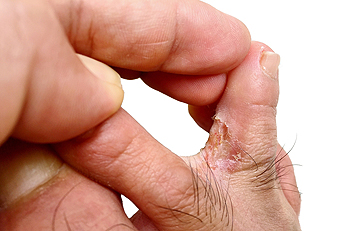 The medical condition that is known as athlete’s foot is caused by a fungus. Common names for this ailment can include tinea pedis and ringworm of the foot. The symptoms that are typically associated with athlete’s foot can consist of itching on the bottom of the feet and between the toes, in addition to dry, flaky, and cracking skin. In severe cases, there may be small blisters that form which may ooze. This type of fungus generally lives and thrives in warm and moist environments. These can include public swimming pools, locker rooms, and shower room floors. Research has shown that there are methods that can be implemented which may prevent this contagious condition. These can consist of wearing appropriate shoes while in these areas, and avoiding sharing shoes and towels. If you believe you have developed athlete's foot, it is advised that you consult with a podiatrist who can determine what the best treatment is for you.
The medical condition that is known as athlete’s foot is caused by a fungus. Common names for this ailment can include tinea pedis and ringworm of the foot. The symptoms that are typically associated with athlete’s foot can consist of itching on the bottom of the feet and between the toes, in addition to dry, flaky, and cracking skin. In severe cases, there may be small blisters that form which may ooze. This type of fungus generally lives and thrives in warm and moist environments. These can include public swimming pools, locker rooms, and shower room floors. Research has shown that there are methods that can be implemented which may prevent this contagious condition. These can consist of wearing appropriate shoes while in these areas, and avoiding sharing shoes and towels. If you believe you have developed athlete's foot, it is advised that you consult with a podiatrist who can determine what the best treatment is for you.
Athlete’s foot is an inconvenient condition that can be easily reduced with the proper treatment. If you have any concerns about your feet and ankles, contact Dr. Gordon Fosdick from Affiliated Foot Care Center. Our doctor will treat your foot and ankle needs.
Athlete’s Foot: The Sole Story
Athlete's foot, also known as tinea pedis, can be an extremely contagious foot infection. It is commonly contracted in public changing areas and bathrooms, dormitory style living quarters, around locker rooms and public swimming pools, or anywhere your feet often come into contact with other people.
Solutions to Combat Athlete’s Foot
Athlete’s foot can cause many irritating symptoms such as dry and flaking skin, itching, and redness. Some more severe symptoms can include bleeding and cracked skin, intense itching and burning, and even pain when walking. In the worst cases, Athlete’s foot can cause blistering as well. Speak to your podiatrist for a better understanding of the different causes of Athlete’s foot, as well as help in determining which treatment options are best for you.
If you have any questions please feel free to contact our offices located in Middlefield and Wallingford, CT . We offer the newest diagnostic and treatment technologies for all your foot and ankle needs.
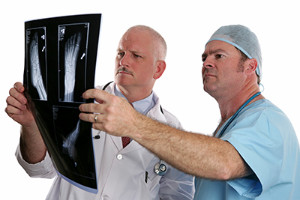 People who have the desire to learn about the treatment and prevention of foot disorders may work in the field of podiatry. They learn about how the foot is constructed, and the importance of maintaining proper foot care. The levels of education consist of earning a bachelor's degree, followed by enrolling in a college of podiatric medicine. This is a four year program, and incorporates two years of laboratory work. Upon completion, the student will become a doctor of podiatric medicine, which is referred to as a DPM. Residency training provides the skills needed to perform a variety of foot surgeries, in addition to learning about different medical techniques. If you are interested in pursuing a career in podiatry, it is advised that you confer with a podiatrist who can guide you in determining if this is a correct choice for you.
People who have the desire to learn about the treatment and prevention of foot disorders may work in the field of podiatry. They learn about how the foot is constructed, and the importance of maintaining proper foot care. The levels of education consist of earning a bachelor's degree, followed by enrolling in a college of podiatric medicine. This is a four year program, and incorporates two years of laboratory work. Upon completion, the student will become a doctor of podiatric medicine, which is referred to as a DPM. Residency training provides the skills needed to perform a variety of foot surgeries, in addition to learning about different medical techniques. If you are interested in pursuing a career in podiatry, it is advised that you confer with a podiatrist who can guide you in determining if this is a correct choice for you.
If you are experiencing pain in the feet or ankles, don’t join the stubborn majority refusing treatment. Feel free to contact Dr. Gordon Fosdick from Affiliated Foot Care Center. Our doctor can provide the care you need to keep you pain-free and on your feet.
What Is a Podiatrist?
Someone would seek the care of a podiatrist if they have suffered a foot injury or have common foot ailments such as heal spurs, bunions, arch problems, deformities, ingrown toenails, corns, foot and ankle problems, etc.
Podiatric Treatment
A podiatrist will treat the problematic areas of the feet, ankle or lower leg by prescribing the following:
A common podiatric procedure a podiatrist will use is a scanner or force plate which will allow the podiatrist to know the designs of orthotics. Patients are then told to follow a series of tasks to complete the treatment. The computer will scan the foot a see which areas show weight distribution and pressure points. The podiatrist will read the analysis and then determine which treatment plans are available.
If you have any questions please feel free to contact our offices located in Middlefield and Wallingford, CT . We offer the newest diagnostic and treatment technologies for all your foot and ankle needs.
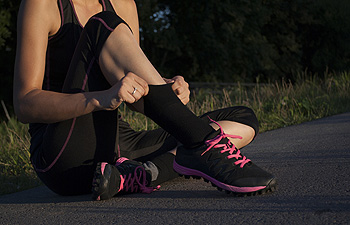 Research has indicated that running injuries may be prevented when the runner has good form, a strong body, and proper footwear. These three components may help to keep running movements consistent. It may also be useful to implement a warm up before a run. This can consist of running in place with your knees up, followed by leaning forward and running for several yards. The force of impact may be lessened when an effort is made to run quietly. Quietly running may shorten your stride, which can make it easier to land on the midfoot. Please consult with a podiatrist if you would like additional information about specific running techniques that can help to prevent injuries.
Research has indicated that running injuries may be prevented when the runner has good form, a strong body, and proper footwear. These three components may help to keep running movements consistent. It may also be useful to implement a warm up before a run. This can consist of running in place with your knees up, followed by leaning forward and running for several yards. The force of impact may be lessened when an effort is made to run quietly. Quietly running may shorten your stride, which can make it easier to land on the midfoot. Please consult with a podiatrist if you would like additional information about specific running techniques that can help to prevent injuries.
Exercising your feet regularly with the proper foot wear is a great way to prevent injuries. If you have any concerns about your feet, contact Dr. Gordon Fosdick of Affiliated Foot Care Center. Our doctor will treat your foot and ankle needs.
How to Prevent Running Injuries
Many common running injuries are caused by overuse and overtraining. When the back of the kneecap starts wearing out and starts causing pain in your knee, this is commonly referred to as runner’s knee. Runner’s knee is a decrease in strength in your quadriceps and can occur if you’re not wearing properly fitted or supporting shoes. To prevent runner’s knee, focusing on hip strengthening is a good idea, as well as strengthening your quads to keep the kneecaps aligned.
What Are Some Causes of Running Injuries?
- One cause of a common running injury is called iliotibial band syndrome.
- Plantar fasciitis is also another common injury.
- Stress fractures can occur from overtraining, lack of calcium, or even your running style.
Best Ways to Prevent Running Injuries
- Wear footwear that fits properly and suits your running needs.
- Running shoes are the only protective gear that runners have to safeguard them from injury.
- Make a training schedule. Adding strengthening exercises as well as regular stretching can help keep you strong and limber and can lessen the possibility of injuries.
- Stretching keeps muscles limber; this will help you gain better flexibility.
If you have any questions please feel free to contact our offices located in Middlefield and Wallingford, CT . We offer the newest diagnostic and treatment technologies for all your foot and ankle needs.
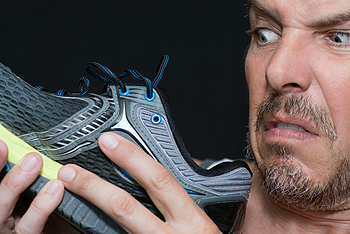 When the feet sweat continuously, it may be a condition that is known as plantar hyperhidrosis. Sweaty feet can be uncomfortable and may lead to bacterial and fungal infections. It is beneficial to wear socks and shoes that are made from a breathable material, which may help to control any odor that can come from the feet. Research has indicated that walking barefoot as often as possible may help to manage this condition, in addition to refraining from wearing the same pair of shoes for two days in a row. Some patients find it helpful to use an antiperspirant on their feet, as well as wear insoles that can absorb the sweat. If you are suffering from this condition, it is strongly suggested that you consult with a podiatrist who can help you to control plantar hyperhidrosis.
When the feet sweat continuously, it may be a condition that is known as plantar hyperhidrosis. Sweaty feet can be uncomfortable and may lead to bacterial and fungal infections. It is beneficial to wear socks and shoes that are made from a breathable material, which may help to control any odor that can come from the feet. Research has indicated that walking barefoot as often as possible may help to manage this condition, in addition to refraining from wearing the same pair of shoes for two days in a row. Some patients find it helpful to use an antiperspirant on their feet, as well as wear insoles that can absorb the sweat. If you are suffering from this condition, it is strongly suggested that you consult with a podiatrist who can help you to control plantar hyperhidrosis.
If you are suffering from hyperhidrosis contact Dr. Gordon Fosdick of Affiliated Foot Care Center. Our doctor can provide the care you need to attend to all of your foot and ankle needs.
Hyperhidrosis of the Feet
Hyperhidrosis is a rare disorder that can cause people to have excessive sweating of their feet. This can usually occur all on its own without rigorous activity involved. People who suffer from hyperhidrosis may also experience sweaty palms.
Although it is said that sweating is a healthy process meant to cool down the body temperature and to maintain a proper internal temperature, hyperhidrosis may prove to be a huge hindrance on a person’s everyday life.
Plantar hyperhidrosis is considered to be the main form of hyperhidrosis. Secondary hyperhidrosis can refer to sweating that occurs in areas other than the feet or hands and armpits. Often this may be a sign of it being related to another medical condition such as menopause, hyperthyroidism and even Parkinson’s disease.
In order to alleviate this condition, it is important to see your doctor so that they may prescribe the necessary medications so that you can begin to live a normal life again. If this is left untreated, it is said that it will persist throughout an individual’s life.
A last resort approach would be surgery, but it is best to speak with your doctor to find out what may be the best treatment for you.
If you have any questions please feel free to contact our offices located in Middlefield and Wallingford, CT . We offer the newest diagnostic and treatment technologies for all your foot and ankle needs.